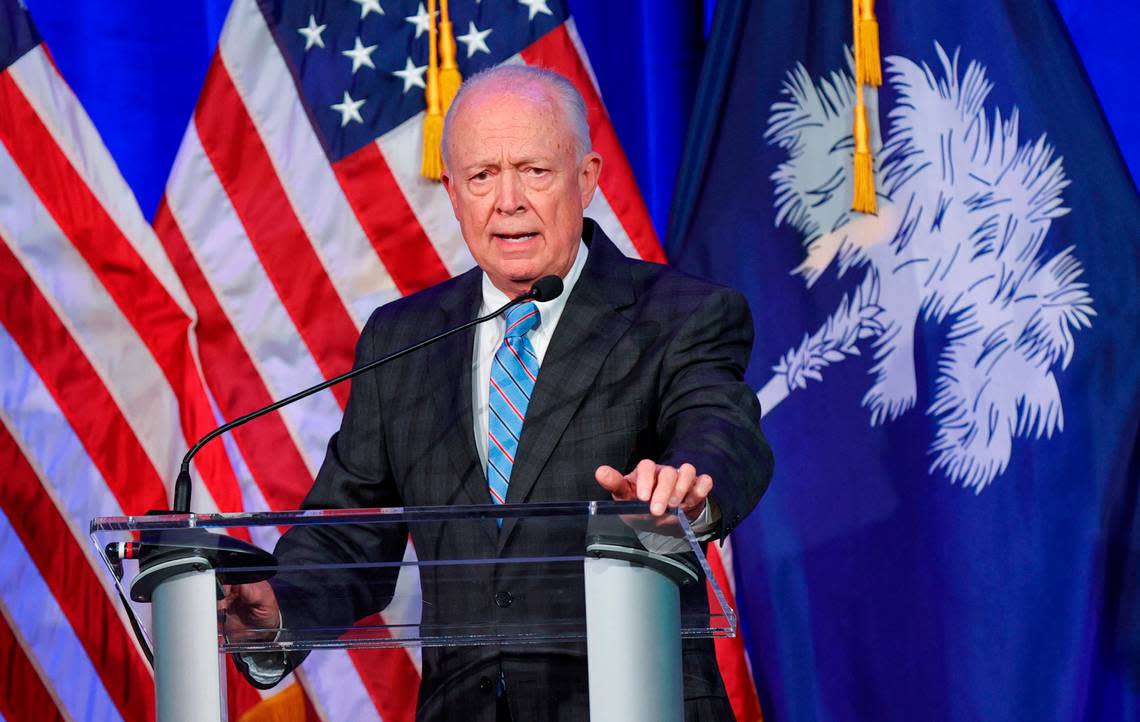SC comptroller acknowledges $3.5B accounting mistake in state cash balances

A 10-year mistake has led the office of South Carolina’s chief accountant to overstate the state’s cash balances by $3.5 billion.
Comptroller General Richard Eckstrom on Thursday discussed the years-long error during a budget hearing with senators who oversee his agency’s annual spending request.
He told The State newspaper that the issue came from double counting money transferred to colleges and universities and confusion over how to report those dollars as the state went through an accounting system change.
The extra $3.5 billion that was reported by the comptroller’s office is an accumulated total over 10 years, Eckstrom said.
Eckstrom also acknowledged the error and corrected the state’s general fund account balances in his most recent Annual Comprehensive Financial Report, which was completed in November.
“I think that there was a misunderstanding over these transfers to colleges and universities over how they should be reflected in this (annual financial) report,” Eckstrom said.
In a briefing document to senators, Eckstrom said money appropriated to colleges and universities was not taken into account in the annual financial report, thus over-inflating the general fund balances. But the revenue received by colleges and universities was correctly accounted for.
“It had no impact on the state’s actual cash or on the state’s annual appropriation and budgeting process. Furthermore, the general ledger was correct throughout,” Eckstrom wrote.
Eckstrom, who was reelected in November, said he first told budget leaders and the governor’s office of the revelation in November.
“I will accept responsibility for mistakes,” said Eckstrom, who has been comptroller since 2003. “We worked with the independent auditors at the end of the year to try to determine why we were seeing what we were seeing. I can’t fault the audit firm for not identifying this.”
Gov. Henry McMaster’s office said the governor is confident the issue has been identified and fixed.
“Members of the General Assembly have indicated that they plan on taking a close look at the situation, which will help ensure that it won’t happen again,” said Brandon Charochak, a McMaster spokesman.
However, senators on Thursday were visibly upset over the error.
“We owe it to our state to ensure the accuracy in that report you held up and make sure that we have systems in place to ensure something like this doesn’t happen again,” said state Sen. Larry Grooms, R-Berkeley. “But $3.5 billion. That’s hard for me to get my head wrapped around that number of $3.5 billion (in) overstatement of cash balances.”
The big questions are how did the mistake happen, when did the comptroller know it, and when did he make notification a mistake was made, said Senate Finance Chairman Harvey Peeler, R-Cherokee.
Peeler said Grooms, Sens. Stephen Goldfinch, R-Georgetown; Mike Fanning, D-Fairfield; Thomas McElveen, D-Sumter; and Thomas Young, R-Aiken, will do a “deep dive” into what happened.
“How could something like this go on?” Peeler said to reporters Thursday. “I mean, don’t we have auditors? Why didn’t auditors catch this? Something’s amiss.”
Twelve House Democrats Friday asked for an audit and analysis by the Legislative Audit Council into the reporting error.
“We are elected to do due diligence for our constituents and without a complete and correct budget, we are unable to legislate in good conscience,” state Rep. Heather Bauer, D-Richland wrote to the audit council.
Peeler added the state hasn’t spent money it doesn’t have.
“I was told we have ample amount of money to pay our bills,” Peeler said.
Eckstrom said it should not affect the budgeting process lawmakers are going through.
Frank Rainwater, the director of the Revenue and Fiscal Affairs office, said the correction made by Eckstrom will not affect this year’s budgeting process, as it will not change revenue projections. The cash balances only reflect the amounts state agencies, colleges and universities have already been given by the General Assembly but have not spent.
Lawmakers have an additional $3.5 billion in new annual and one-time dollars available to allocate in a budget this year that is expected to total around $15 billion.
“It never affected what the state had,” Eckstrom said. “Never did. Not $1 was impacted by this. It’s only a reporting issue.”
